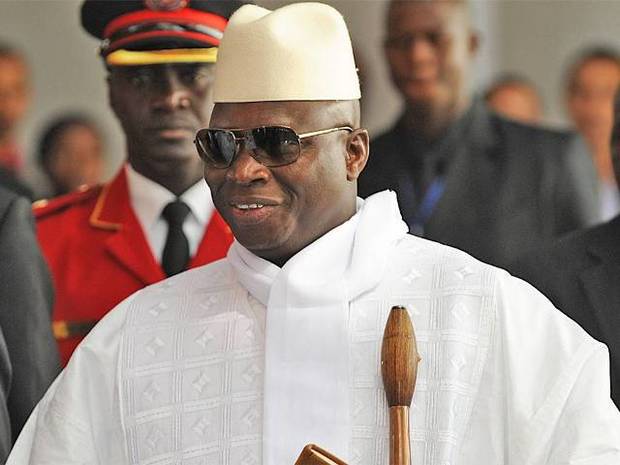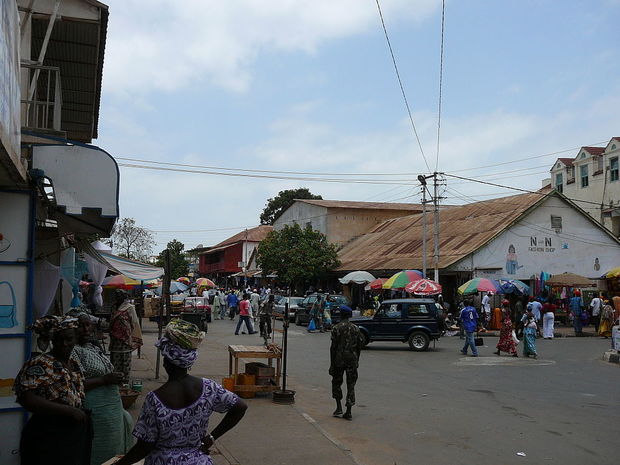Expert in African studies on invasion of Gambia: ''In Africa, only several political leaders voluntarily lost power''
How will the political conflict in a small West African country end?
A political conflict near Gambia is breaking out in West Africa. The presidential election took place in the country. Candidate of the opposition Adama Barrow won it. However, the former head of the state is not in a hurry to leave the post. Armed forced invaded the country from neighbouring Senegal. In an interview to Realnoe Vremya's correspondent, expert in African studies Kirill Babaev told about the reasons for the crisis and forecasted its outcome.
Mr Babaev, a strange thing is taking place in Gambia these days: presidential election took place, but former head of the country Yahya Jammeh doesn't leave his post saying that there was a violation during the vote. Could you explain what's the catch?
The situation is not strange for Africa. In Africa, only several political leaders voluntarily lost power — we can count them on the fingers of one hand. This is why the Gambian president's behaviour is quite predictable. He came to power as a result of a coup, and the election did not have any importance for him. For this reason, naturally, he will try to retain the power with methods he consider logical. From a perspective of the international society, they are not legal.
Do you mean military methods?
First of all, military and political.
That is to say, was not the election rigged?
In Africa, one can't be absolutely certain because there is no any stable and reliable tally system. There are not international monitors and CCTV monitoring in elections. This is why from a perspective of justice, we can only guess. Nevertheless, as the electoral commission admitted them legitimate and recognised the win of the oppositional candidate, it would be logical to presuppose that the president will leave his post voluntarily. As you can see, it is not happening for different reasons.

''Yahya Jammeh will try to retain the power with methods he consider logical. From a perspective of the international society, they are not legal.'' Photo: kibaaro.com
Why is Senegal sending troops to Gambia? Do they need it like anybody else? Can we suppose that President-elect Adama Barrow is their person?
Senegal always played a role of Gambia's stability guarantee. It has been neither the first nor second time when Senegalese troops appear on the territory of the country. It happened in the past when Gambia had civil wars, coups or any political instability. Senegal sent troops, first of all, to provide stability in its country because Senegal is the only geographical neighbour of Gambia. It goes without saying that the country carefully follows the life of its neighbours. The candidate from the opposition is a more comfortable president for both Senegal and European countries, of course, first of all, for England and France. They are interested in a substitution of the odious dictator, who is in power now, for a more adequate character.
Is the probability of a military showdown high?
I think it is extremely low. Gambia is a small country. It has few armed forces. The army of Gambia consists of two or three thousand people. They won't be able to oppose the Senegalese forces and are unlikely to wish it. I think everything will be quite peaceful.
So will dictator Jammeh leave the post and Barrow become the president?
As there is a corresponding resolution of the UN Security Council, there is a desire of the African international organisations and Senegalese troops are already in the country, I think it is a matter of a couple of days, and we will see a new political regime in the country.
Personally, I have an impression that the UN and Europe are observing but not interfering in the process...
They are actively interfering there, by the way. What is more, they affect it in many ways because West Africa is one of priorities for European countries.

''Senegal always played a role of Gambia's stability guarantee. It has been neither the first nor second time when Senegalese troops appear on the territory of the country.'' Photo: reuters.com
What does Gambia do in general? What position among other African countries does it take?
It is quite a poor and small country. The population is homogeneous. There have never been any significant long-term political problems. Mainly people deal with agriculture. There are rare metals, but a bit. This is why the country doesn't have big pools or treasures.
It is known that over 90% of the population are Muslims. Is religious radicalism considered there?
These factors were connected only with the president who started to change his politics much on the basis of Islam and announced the country Islamic. Generally speaking, he had several flamboyant political acts that could suspect a fundamental Islamist in him. In fact, it is what probably today's European countries are afraid of.
What is the West African Economic and Monetary Union? Why do these countries interfere in this process?
It is a union of West African countries. Naturally, they are interested in stability in the region, it is important fro them. They are afraid that instability can expand to their territory: today it stars in Gambia, tomorrow they will have a problem.

''It is quite a poor and small country. The population is homogeneous. There have never been any significant long-term political problems.'' Photo: restbee.ru
As far as I am concerned, Gambia was a British colony, and Senegal and some other West African countries belonged to France. Is not this conflict a consequence of a colonial fight?
No. Nowadays England and France are working in one direction. Both are interested in a chnage of the political regime in Gambia. So I think that the president-elect will come to power soon, and it will happen these days.